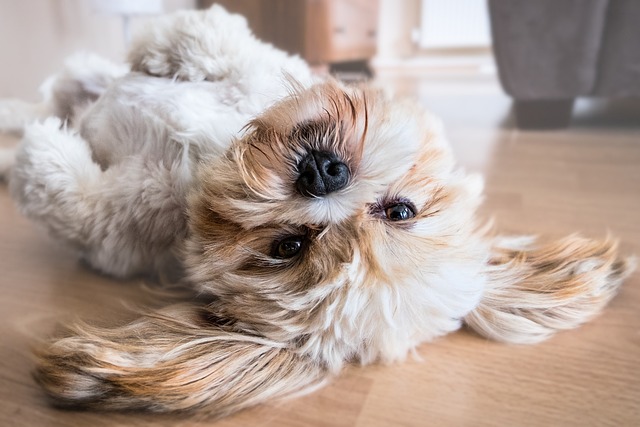
How do i train my dog to be obedient?
Watching your dog dart across the park ignoring your calls isn’t just frustrating—it can put them at risk near busy streets or public spaces.
Bichon Frises are those fluffy, cloud-like bundles of energy that light up a room—until they leave an unexpected surprise on your living room rug. House training these little balls of fur can feel like a game of guesswork, but with the right rhythm, it’s totally doable. Their playful nature means they’re quick to learn, but they also get distracted easily, so consistency is your secret weapon here.
Start by picking a spot that works for both of you. If you have a yard, that’s a solid choice; just make sure it’s easily accessible, maybe near a door you can open quickly. Apartment dwellers might opt for puppy pads or a small artificial grass patch in the bathroom. The key is to keep it consistent—your Bichon will start associating that specific spot with “business time.” Take them there first thing in the morning, right after meals, and before bed—puppies have tiny bladders, so setting a schedule helps them learn when to hold it and when to go.
 When they do their business in the right spot, make a big deal out of it. A high-pitched “good job!” and a tiny treat will make their tail wag like crazy—and they’ll remember that positive vibe next time. If accidents happen, resist the urge to scold them. Yelling or rubbing their nose in it just confuses them; they won’t connect the punishment to the mess they made 10 minutes ago. Instead, calmly clean it up with an enzymatic cleaner to get rid of the scent—if they smell their previous mistake, they might repeat it.
When they do their business in the right spot, make a big deal out of it. A high-pitched “good job!” and a tiny treat will make their tail wag like crazy—and they’ll remember that positive vibe next time. If accidents happen, resist the urge to scold them. Yelling or rubbing their nose in it just confuses them; they won’t connect the punishment to the mess they made 10 minutes ago. Instead, calmly clean it up with an enzymatic cleaner to get rid of the scent—if they smell their previous mistake, they might repeat it.
Timing is everything with these little dogs. Bichons thrive on routine, so try to feed them at the same times daily—this regulates their bathroom habits, making it easier to predict when they’ll need to go. After they eat, give them 15-20 minutes, then head to their spot. Playtime is important too, but keep an eye out for signs they need a break—pacing, sniffing the floor, or circling are all clues. If you catch those, scoop them up and head to their designated area before an accident occurs.
It’s also smart to brush up on local laws when training your Bichon. In many cities across Europe and North America, failing to clean up after your dog in public can land you with a fine—some places charge upwards of €50 or $100. Even in your own yard, keeping it tidy is a courtesy to neighbors, especially if you live in a dense area. Carrying poop bags on walks becomes second nature, and teaching your Bichon to go on command can make those outings less stressful, whether you’re in a park or on a city street.
Patience is the final piece of the puzzle. Bichon puppies might take a few weeks to get the hang of it, and adult dogs adjusting to a new home could need a little longer. Celebrate the small wins—a week with no accidents, a successful trip to their spot on command—and remember that every dog learns at their own pace. With time, your fluffy friend will trot over to their designated area like it’s the most natural thing in the world, leaving your floors clean and your heart full.

Watching your dog dart across the park ignoring your calls isn’t just frustrating—it can put them at risk near busy streets or public spaces.

New puppy owners often find themselves rushing to clean up accidents before they set in, and that’s where puppy pad training becomes a game-changer.

If you've noticed your dog's waistline disappearing and your veterinarian has mentioned those few extra pounds, your first instinct might be to simply reduce the amount of food in their bowl.

Training a dog to use a designated spot indoors isn’t as daunting as many new owners fear, but it does take consistency and an understanding of your pet’s needs.

That moment of dread on a walk is all too familiar for many new dog owners. You see another dog approaching down the sidewalk of your neighborhood

If the sight of another dog on your neighborhood walk makes your heart sink as your own dog erupts into a frenzy of barking and lunging, you're not alone.